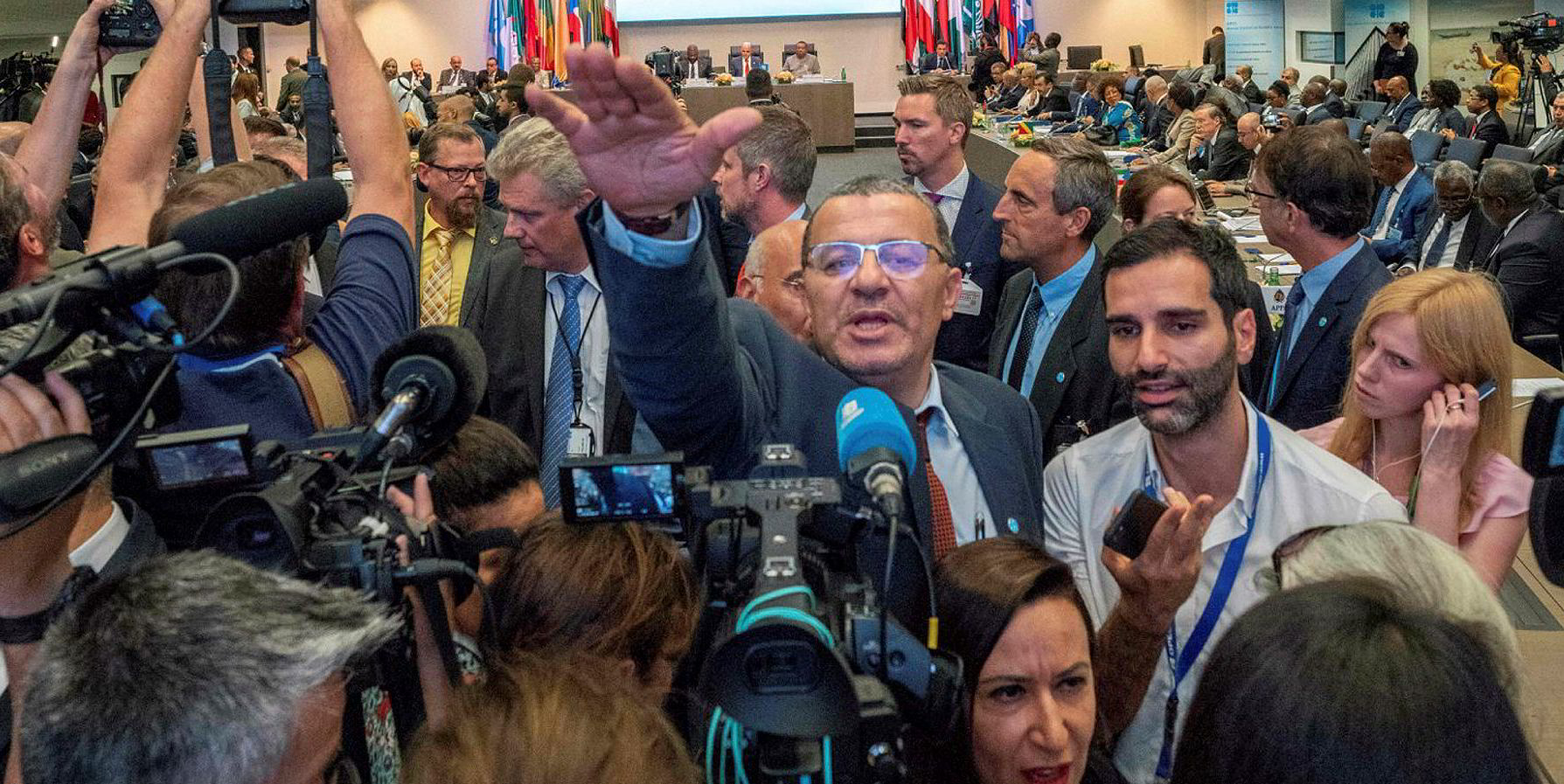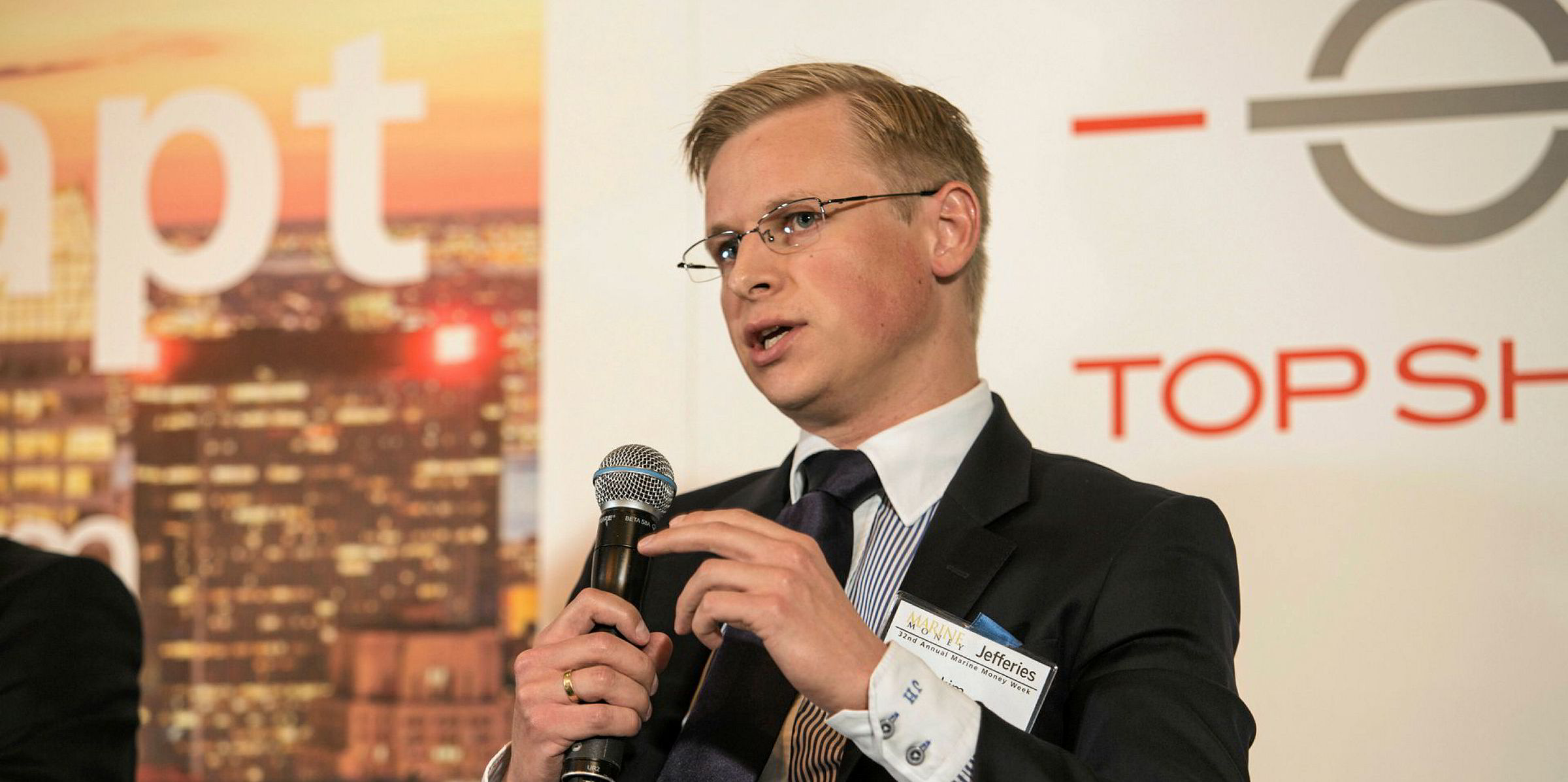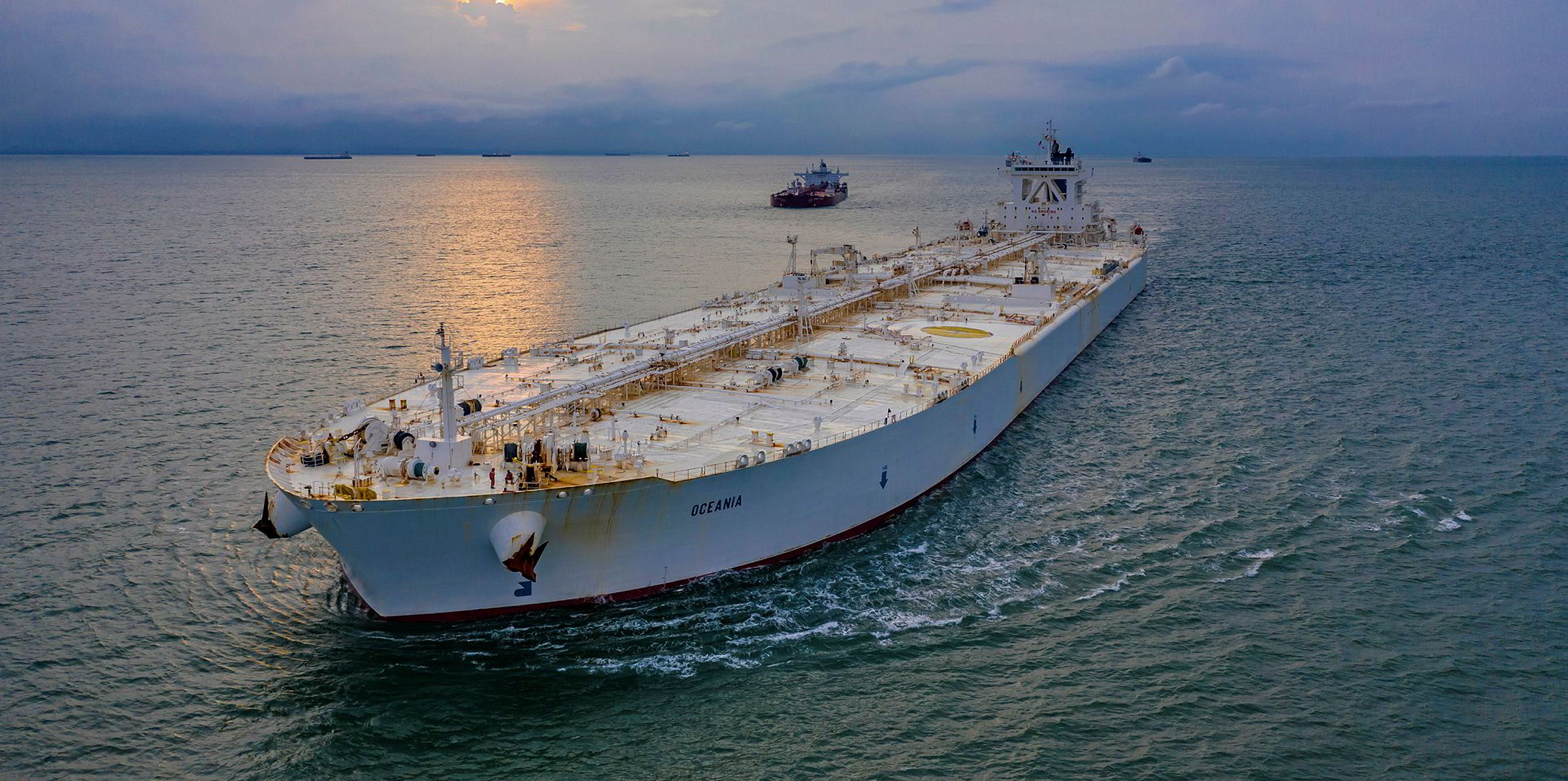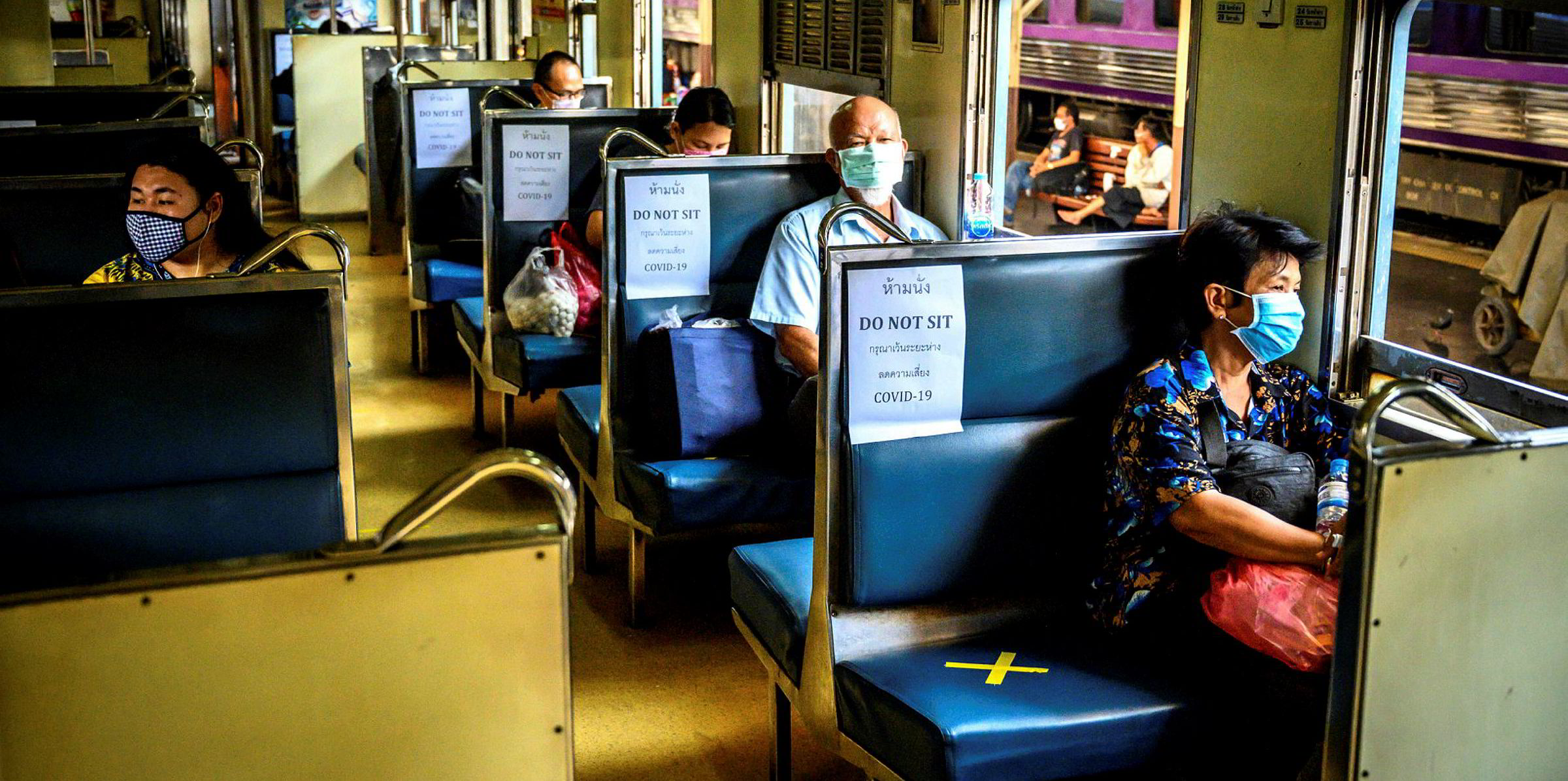The “biggest oil deal in history” agreed by Opec and others last weekend should signal a definite end to the tanker bull market — but not for now.
VLCCs early this week were still winning astonishing hire rates — $270,000 a day for Middle East to China with vessels for storage earning over $160,000.
Almost 10m barrels per day (bpd) of crude will be taken out of the market by Saudi Arabia, Russia and others if they stick to the new output targets.
A further 5m bpd should also be removed as countries such as the US, Norway and Canada see operators voluntarily cut back.
Slashing output
This would represent 15% of the total world output of 100m bpd. But, even if it does come about, it will still not be enough to lift prices too strongly.
Opec+ — as the cartel, plus Russia and nine other oil-producing nations, is known — is trying to halt the global crude-price panic triggered by its own internal oil price war and the Covid-19 pandemic.
The reckless oil price war between Riyadh and Moscow has been called off but nobody can control the pandemic, which has brought many economies close to a standstill and taken an estimated 20% of oil demand away.
Tanker companies have been benefiting hugely from oil users taking advantage of a world awash with cheap oil.
Spiking rates
Spot VLCC hire rates spiked above $250,000 from the Arabian Gulf to China in mid-March and the bonanza continues.
There are still opportunities for tanker owners to take advantage of a strong trading and storage demand, but this is all expected to gradually decline.
The storage demand is built on the back of a “contango” oil market, where future crude prices are higher than current ones.
On Tuesday, Brent Blend was back from bucket-shop levels to $33 per barrel, but this is still way off what Opec+ members need to keep their economies on track
A new report out this week from Cleaves Securities argues the second half of this year will be miserable for shipowners.
“The oil tanker demand outlook from 2H20 [the second half of 2020] until 2022 has deteriorated significantly from lowered oil supply,” it argues.
Downgrading shipping
Cleaves shipping analyst Joakim Hannisdahl has downgraded the entire tanker sector from "buy" to "hold" and has “sell” recommendations posted now on Frontline, Teekay Tankers and other stocks.
The same gloomy message was delivered earlier in the month by maritime consultancy Marsoft, which predicted an Opec+ deal would be “bad” for the tanker market.
On the plus side, balance sheets have been boosted by the earlier price spike, while the tanker orderbook versus current fleet capacity remains at its lowest level for nearly a quarter of a century.
Tanker 'supercycle'
Cleaves predicted that this could lead to a tanker boom — or “super-cycle” — developing in two to three years.
The Opec+ agreement has heralded an end to unfettered new crude supply coming into the market, but global prices remain subdued.
On Tuesday, Brent Blend was back from bucket-shop levels to $33 per barrel, but this is still way off what Opec+ members need to keep their economies on track. Could they be forced into making further cuts?
Certainly, there can be no full recovery for oil prices until there are signs that the pandemic is easing and economies are recovering fully.
Clarksons Research, in its Spring Shipping Review and Outlook, warned of a potential 4% decrease in overall seaborne trade this year.
China, the world’s biggest oil importer and huge demand driver for dry bulk tonnage, is already moving into a post-virus world with ports and factories active again.
The Financial Times reports data from location technology firm TomTom, which shows rush-hour traffic in big Chinese cities has reached the average levels seen in the normal times of 2019.
Back to work?
Some oil refineries in China are also reported to be back working at more than 80% capacity and airline passenger numbers are double those seen at the height of the virus.
But commercial activity in the US and parts of Europe remain badly hit amid a rising number of Covid-19 cases and a population unable to leave their homes.
The UK's Office for Budget Responsibility expects a three-month lockdown to lead to a 35% decline in GDP — the biggest fall for a century — but a sharp recovery after that.
The Opec+ deal has holed big tankers below the waterline but while the rest of the shipping world is miserable, do not expect tanker owners to give up the good times until they really have to.






